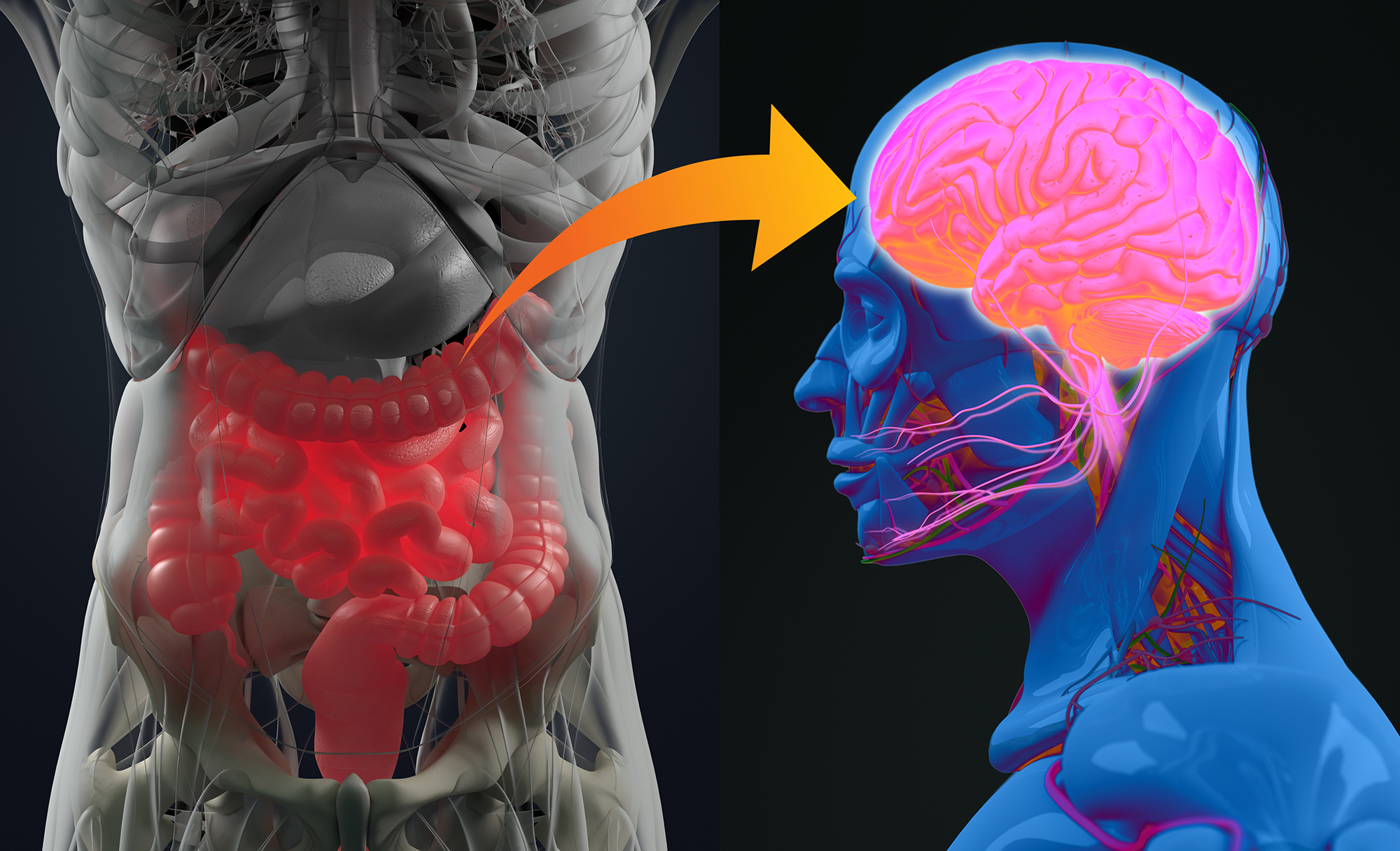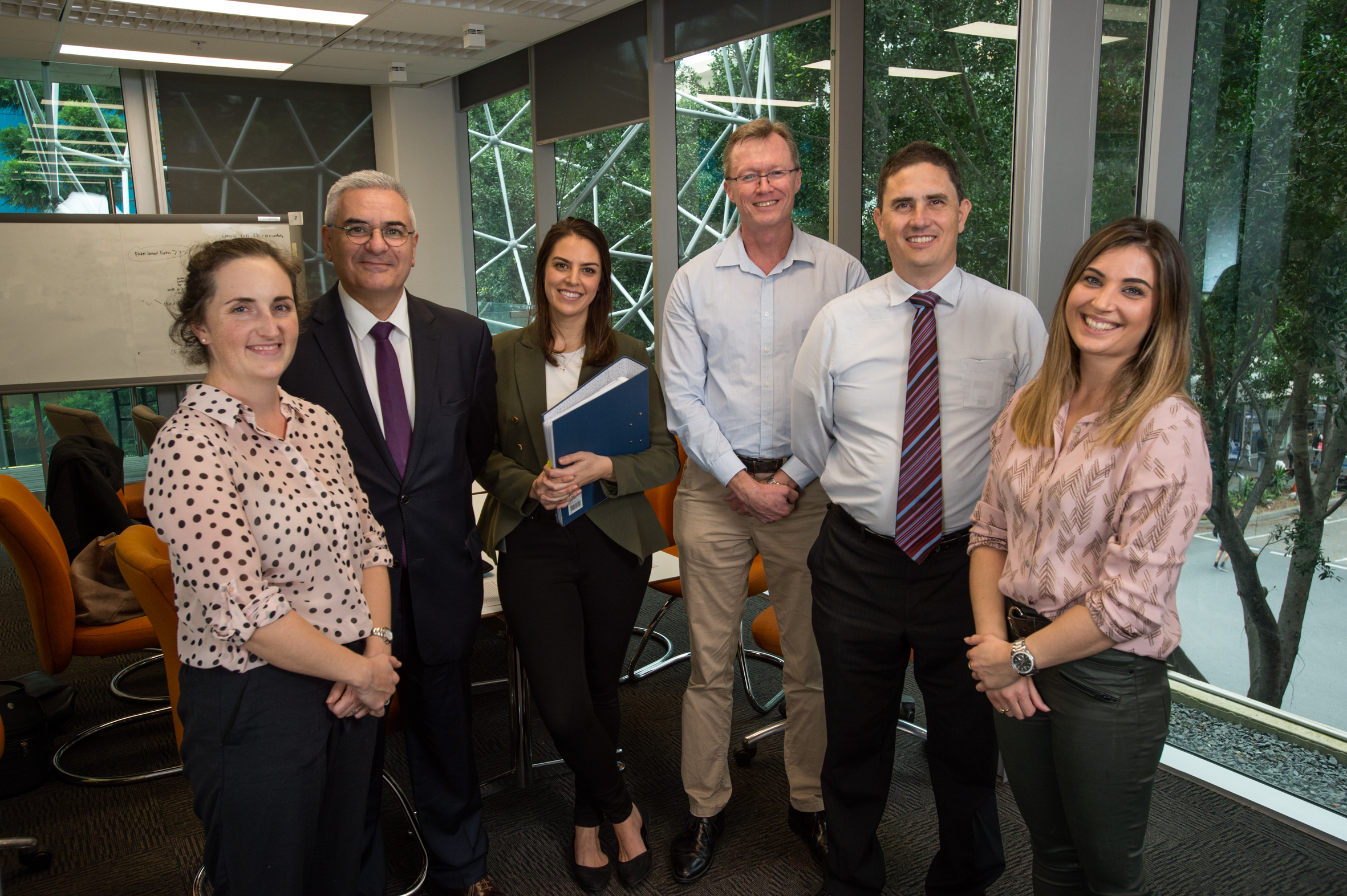
Do probiotics have a role to play in managing depression? That’s the question QUT-led research is exploring through a clinical trial currently underway.
Principal investigator, clinical psychologist Dr Esben Strodl from QUT’s Institute of Health and Biomedical Innovation, said 32 volunteers experiencing depression have been recruited for the trial so far – and the team is seeking more participants.
Participants can register their interest to be part of the trial here.
“Our research is exploring links between an imbalance of the intestinal microbiome, known as gut dysbiosis, and those biochemical pathways between the digestive system and emotional and mood centres of the brain,” Dr Strodl said.
“Participants in the trial will take a combination of probiotics and magnesium orotate, and we’ll be measuring the effects of this on their physical and mental health.
“In previous small pilot studies, probiotics and magnesium orotate were shown to provide positive benefits to people with depression who were not responding to commonly prescribed anti-depressant medications – and we’re hoping to see those results replicated in this larger study.
“About 30 per cent of people with depression don’t respond to medications or psychological therapies, so it’s important to explore more potential options, such as probiotics.”

Brisbane mum Anne*, 37, signed up for the trial after she sought help for her depression, but was cautious about potential side effects of taking anti-depressant medication.
“I have a nursing background, so I was a little sceptical about whether probiotics would be any help at all, as in general terms we are trained to think of conventional medications as the be all and end all,” she said.
“There is certainly no real education for the profession on the gut-brain link.
“But I like to have an open mind about changes happening in mental health and wanted to learn more about different alternatives available that could potentially save me from needing to go down the anti-depressant route.
“I think if anybody out there is interested in trying a different approach to tackling their mental health struggles, then what have you got to lose to take part?
“Being part of this potentially ground breaking trial could not only benefit you, but others in the future.
“There’s certainly a lot of detailed discussion and research at present about the gut-brain axis and how the gut affects mental health. I think we all need to be open to ideas and research into health. And I found this to be a positive experience.”
Co-investigators in the trial are Dr Matthew Bambling from University of Queensland’s Faculty of Medicine, and University of Sydney Medical School Adjunct Professor and Director of Medical Research at Medlab Clinical Limited Luis Vitetta. The compound being tested is Medlab’s targeted nutraceutical NRGBiotic.

Volunteers will be monitored over eight weeks, and the study involves testing of gut microbiome and activity of the nervous system.
More information about the clinical trial is available here: https://goji.ihbi.qut.edu.au/acai/trials/probiotic
Contact Dr Sophie Parham or Dr Gabrielle Ritchie at depression@qut.edu.au or phone 0466 947 942.
*Name has been changed
QUT Media contacts: Karen Milliner, 07 3138 1841 or k.milliner@qut.edu.au
After hours: Rose Trapnell, 0407 585 901 or media@qut.edu.au




